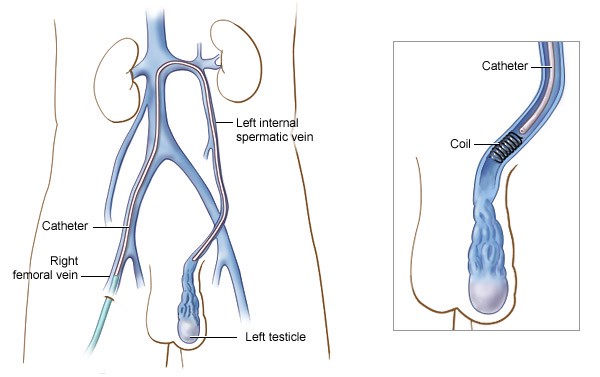A varicocele is an abnormal enlargement of veins (called pampiniform plexus) inside the scrotum. Most varicoceles (>80%) occur on the left side and the remainder on both sides.

Symptoms of Varicocele
In most of the cases it causes no problems but sometimes it may cause the following:
-
Dragging pain in the scrotum
-
Infertility
-
Slow growth or shrinking of one of the testicles
Diagnosis of Varicocele
The “gold standard” way to diagnose varicoceles is by physical examination i.e. palpitation of the patient’s scrotum in a standing position.
Laparoscopic Varicocelectomy for Varicocele
Laparoscopic Varicocelectomy is performed under general anaesthesia with 3 small incisions (5mm each) made in the abdomen by the surgeon. One of the incisions is used to insert a port (nozzle) that fills the carbon dioxide gas for inflation. Now laparoscope is inserted through another incision. A laparoscope is a telescope lookalike with a light and camera on the end. It allows the surgeon to clearly view inside of the abdomen on the monitor outside. After careful examination, varicoceles on the right or left or both are approached. The abnormal veins are identified and clipped and divided. After completing the procedure, carbon dioxide is released and the incisions are closed with sutures or staples, or covered with glue-like bandage.
Advantages of Laparoscopic Varicocelectomy for Varicocele
-
Faster recovery
-
Only few hours or overnight hospitalization
-
Earlier ambulation
-
Sooner return to work
-
Very less pain during and after the procedure
-
Smaller incisions without any cut on abdominal muscles
-
Negligible risks and complications
-
Less chances of wound infection
-
High success rate








